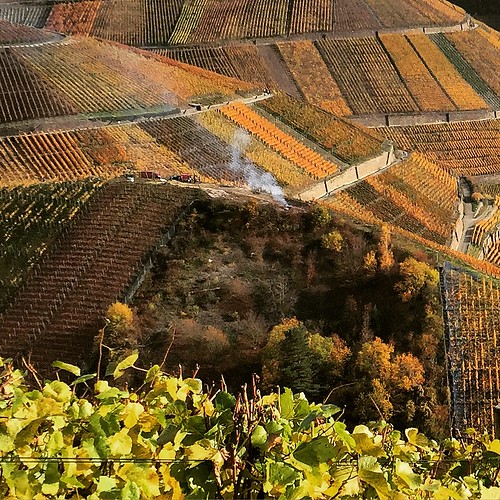- Molecular characterization of camel breeds of Gujarat using microsatellite markers. The two sympatric camel breeds Kachchhi and Kharai are genetically distinct.
- Beefing Up Species Richness? The Effect of Land-Use on Mammal Diversity in an Arid Biodiversity Hotspot. Livestock and wildlife can co-exist.
- Analysis of genetic diversity of Tunisian caprifig (Ficus carica L.) accessions using simple sequence repeat (SSR) markers. Diversity low and mixed up.
- A validated slow-growth in vitro conservation protocol for globe artichoke germplasm: A cost-effective tool to preserve from wild to elite genotypes. Sounds promising.
- Synthesis of a base population of Habanero pepper. That’s an equal mixture of F2 seeds from all crosses obtained among 31 accessions. Now go crazy, breeders!
- ISSR-based analysis of genetic diversity among sorghum landraces growing in some parts of Saudi Arabia and Yemen. Differentiates some white from dark-grained landraces, and among some geographic areas.
- Assessment of sorghum germplasm from Burkina Faso and South Africa to identify new sources of resistance to grain mold and anthracnose. Breeders book flight to Ouagadougou.
- Diversity of morpho-physiological traits in worldwide sweet cherry cultivars of GeneBank collection using multivariate analysis. The national and international material from the Greek genebank falls into 3 groups. Apparently that will be useful to breeders. Who are unavailable for comment.
- Barley domestication: the end of a central dogma? Non-centres, not centres.
- Distribution and diversity of banana (Musa spp.) in Wadi Tiwi, northern Oman. An unfavourable environment at a crossroads of trade routes makes for interesting diversity.
- Plant genetic resources collections and associated information as a baseline resource for genetic diversity studies: an assessment of the IBPGR-supported collections. IBPGR collecting missions in 136 countries between 1975 and 1995 collected over 200,000 samples: here comes the data.
- Social and environmental influences on tartary buckwheat (Fagopyrum tataricum Gaertn.) varietal diversity in Yunnan, China. Lots of exchange of material among farmers, which needs to continue.
Nibbles: Tomato breeding, Cacao phylogeny, Moroccan fig landraces, Filipino homegardens, Neolithic honey, LandMark, I say queso
- Breeding for organic tomatoes needs to be participatory.
- Theobroma cacao is the oldest species within the genus.
- Threatened local fig varieties being promoted in Morocco.
- Teach a fisherman to garden…
- Neolithic people were consuming honey early, but not in the north of Europe.
- Interactive map showing lands managed by native communities.
- The oldest surviving document in spanish is a list of cheeses.
Nibbles: Apple duo, Biofortified lentil, Wild sweet potatoes, African supermarkets, Trees on farms, Botanic gardens history, Funny honey, Spice trade, Byzantine bread, Seed longevity, Edible wilds
- In remembrance of apples past.
- What makes for an “outstanding lentil“?
- Sweet potatoes finally get a taste of the wild.
- A tree for every season: ICRAF pushing trees both local and exotic.
- Can Zambian supermarkets support local farmers AND make money? Should get some of those tree products in there.
- Touring the oldest botanical gardens would make for a great round-the-world trip.
- Though I’d probably want to add a quick diversion to taste hallucinogenic honey in Nepal.
- ‘Twas pepper built Venice. That and bread.
- Defence-related genes important in seed longevity.
- What the heck are microgreens? And will they be discussed at the International Symposium on Biodiversity and Edible Wild Species in Turkey next November?
How orange was Ahr Valley
What I want to know is how they harvest on those slopes.
Brainfood: Wild barley diversity double, Sesame diversity, Coconut genome size, Giant anteater, Sucking mangoes, Teff development, PhilRice, Korean soybeans, Coffee forest management, Switchgrass diversity, Yam diversity
- Analysis of Correlations Between Climate and Molecular Adaptive Evolution of Wild Barley with Geographical Information Systems (GIS). Some genes are associated with climatic variables in wild barley, others not so much.
- Molecular Genotyping of Historical Barley Landraces Reveals Novel Candidate Regions for Local Adaption. Latitudinal structuring in northern European barley landraces down to 7 SNPs. Not clear if related to above.
- Morphological and genetic diversity assessment of sesame (Sesamum indicum L.) accessions differing in origin. Not much geographic structure.
- Ploidy and domestication are associated with genome size variation in Palms. Tall coconuts show more variation in genome size than dwarfs.
- Protected areas effectiveness in maintaining viable giant anteater (Myrmecophaga tridactyla) populations in an agricultural frontier. I just wanted to link to a paper on the giant anteater.
- Genetic Diversity in Seedling Populations of Mango. What exactly are “sucking purposes”?
- Diversifying crops for food and nutrition security — a case of teff. Hipsters will save orphan crops.
- Conservation of Rice Genetic Resources for Food Security. In the Philippines genebank, that is.
- Soybean [Glycine max (L.) Merrill]: Importance as A Crop and Pedigree Reconstruction of Korean Varieties. 168 of 178 varieties released in the last 100 years in Korea can be traced to 4 pedigrees.
- In-situ Conservation of wild forest coffee — Exploring the potential of participatory forest management in south west Ethiopia. It’s the communities, stupid.
- Switchgrass Germplasm Resources. Upland and lowland ecotypes, different ploidy levels, latitudinal differentiation, and a national collection at USDA to play with.
- Participatory evaluation of Guinea yam (Dioscorea cayenensis Lam.–D. rotundata Poir. complex) landraces from Benin and agro-morphological characterization of cultivars tolerant to drought, high soil moisture and chips storage insects. 5-15% of over 400 varieties (including duplications) are good for one thing or another.
